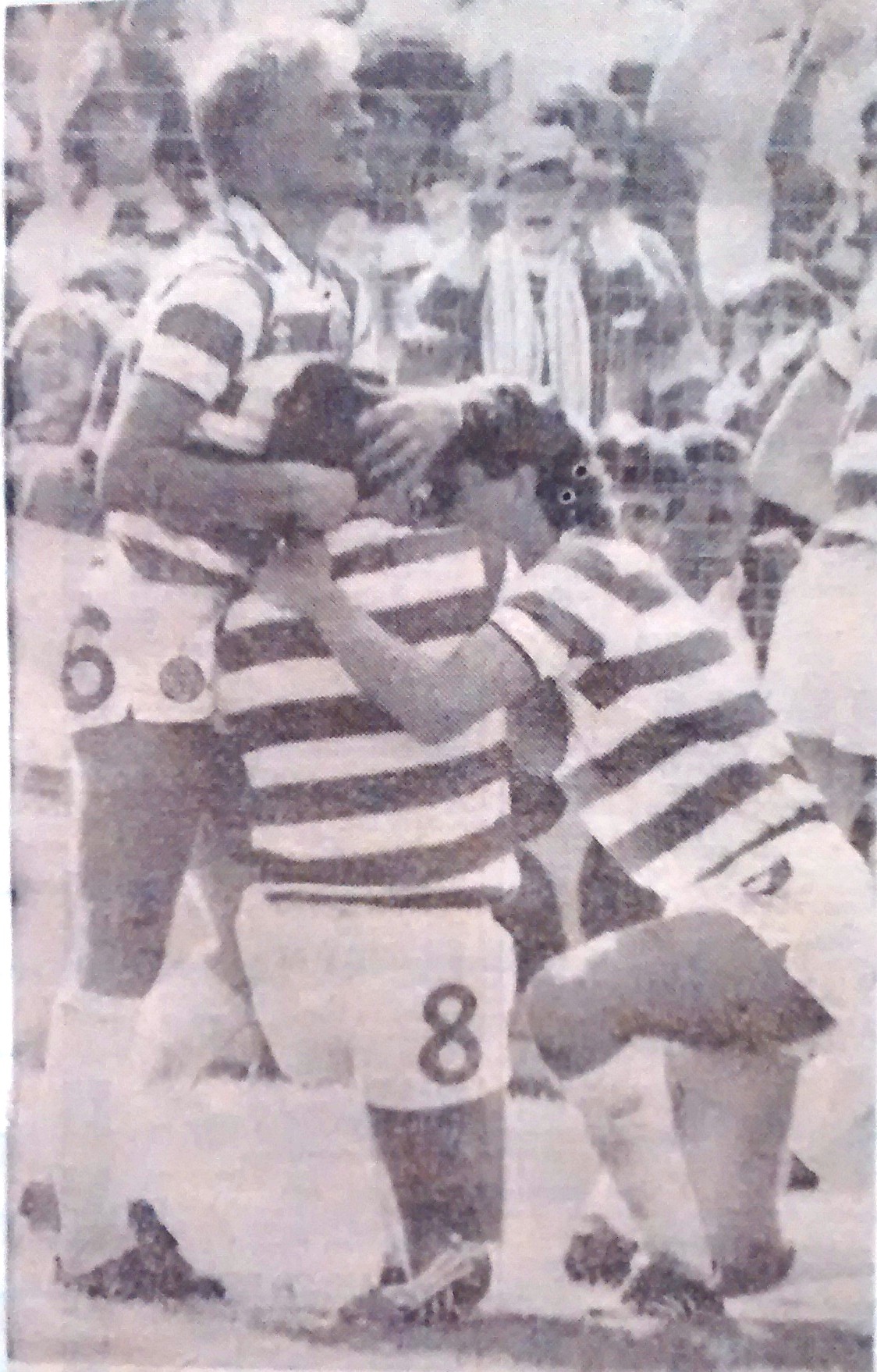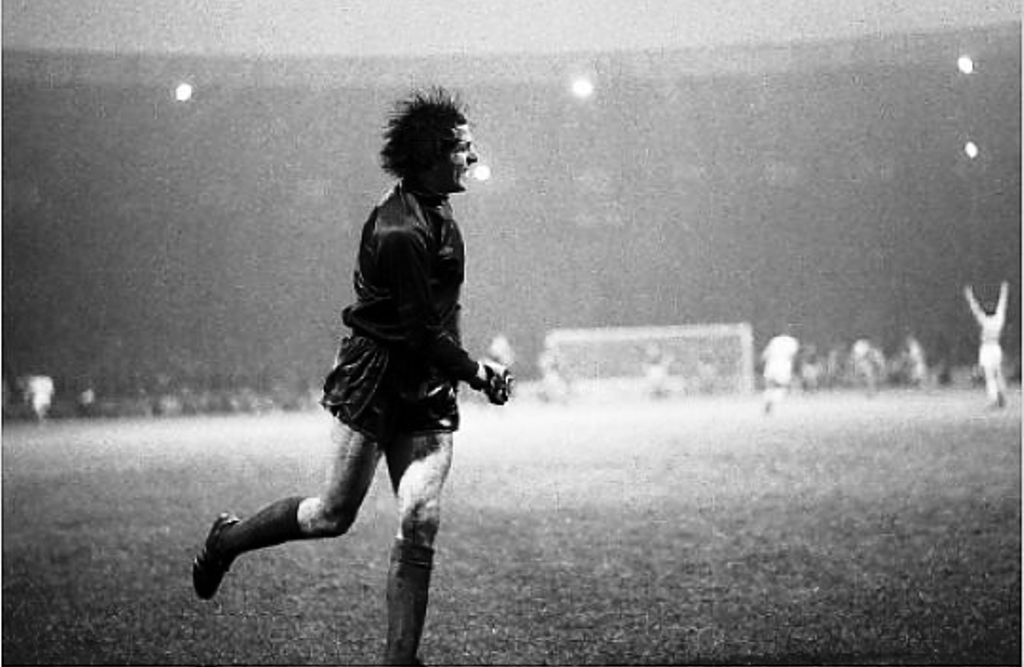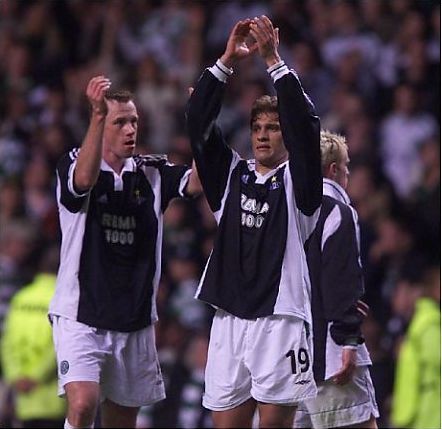In the first of a new series on this site – LATE ARRIVALS – we will take a look in focus on some notable games from Celtic’s past in which the Celts have scored a late goal to save or win the day, showing that old Celtic fighting spirit to the very end. First up is a visit to Tynecastle in August 1985…
The summer of 1985 was not a kind one to Scotland in terms of weather. But on the opening day of the new Scottish season on Saturday, 10th August 1985, the weather was glorious as Celtic travelled east to face Hearts at Tynecastle. The Edinburgh Festival was in full swing and the happy hordes of Celtic fans enjoyed themselves in the carnival atmosphere as they made their way through Edinburgh to Tynecastle that afternoon as groups of curious Japanese and American tourists wondered who these inebriated, green and white clad, individuals actually where.
Celtic manager, David Hay, had not made any signings that summer, which was sure to have been a source of frustration to him and also the supporters. The left back position had been a problem for Hay since Mark Reid had departed to Charlton and he was close to signing the experienced Scots’ internationalist, Frank Gray, but after talks Gray had opted to move to Sunderland from Leeds United, leaving the Celtic boss greatly disappointed.
In pre-season games in Sweden, Hay had surprised everyone by fielding Tommy Burns at left back. Burns was left footed which gave balance to the side but he was never noted for his defensive qualities but could always be relied upon to give his all for the Celtic cause. To add a bit of spice to proceedings, Hay had allowed John Colquhoun to move to Hearts and the right winger would now be in direct opposition to his old mate, Burns, at left back.
22,000 fans packed in to Tynecastle to create a wonderful atmosphere in the warn sunshine, with Celtic fans placed in the main stand, wee enclosure and massed behind the goal at the Gorgie Road end of the stadium.
Celtic had won all four SPL encounters the previous season and although this made them strong favourites, Hearts started the better team and were clearly relishing the fine summer conditions. Colquhoun had already missed a chance before he gave Hearts the lead, somewhat predictably, against his old team. Throughout the game the Hearts winger gave his ex Celtic pal, Tommy Burns, a torrid time as Tommy struggled to come to terms with his new defensive duties.
Celtic looked lethargic in the warm weather and just couldn’t find any rhythm. The much vaunted new strike partnership of Brian McClair and Mo Johnston never got going at any time and they struggled individually and collectively against a Hearts defence in which another ex Celt, Roddy MacDonald, was outstanding. With time running out, Davie Hay brought off an unhappy Brian McClair for Alan McInally as he tried to inspire his team from the sidelines. Sadly, Davie Provan was struck by a gold ball at the Hearts end of the ground as the clock ran down.
There were only seconds remaining when Willie McStay sent a cross across the Hearts area where is brother, Paul, accepted the assist and guided a low shot past Henry Smith into the net. McStay had actually sclaffed his shot and it only went in off a post. It was a messy looking goal but that meant little to the huge Celtic support behind the goal who celebrated noisily, more with relief than any other emotion. Many of them had already made their way to the exits and were glad they had stayed and hadn’t missed the sight of McStay’s equaliser.
After the match all observers had agreed that Hearts had been the better team and that Celtic had been fortunate in scoring so late on. However, no one on that fine, sunny day could possibly appreciated the huge importance of that Paul McStay goal. In May 1986, 35 league games later, Hearts and Celtic fought it out on the final day of the season in their final league fixtures against Dundee and Saint Mirren, respectively. Celtic, as we all know, won that title by the narrowest of margins on goal difference as Hearts blew their big chance but had it not been for a certain Paul McStay goal with seconds remaining at Tynecastle, then Scottish football history may have taken an altogether different turn entirely in 1986.





